Contents
 Accompanying web material can be found at
Accompanying web material can be found at
www.discoveringspeech.wiley.com
Praise for Discovering Speech, Words, and Mind
The study of speech its articulation, perception and linguistic organization has been enormously influential in cognitive science. Now, Byrd and Mintz offer a lucid and appealing introduction to the theoretical themes and empirical practices that move the field. In exposing the role of speech in language, their treatment of the important topics is impressive: both challenging and engaging!
Robert Remez, Columbia University and Barnard College
Its wonderful to have an authoritative introduction to speech production and perception, presented in the context of recent research in linguistics, psychology, and neuroscience.
Mark Liberman, University of Pennsylvania
While there are several textbooks that offer an introduction to cognitive science, this one is unique in integrating a comprehensive introduction to speech articulation and acoustics into the study of language and mind, and providing a concise, fundamental introduction to the methodological assumptions behind work in this field. The writing is engaging, and it manages to explain complex concepts without oversimplifying them.
Louis Goldstein, University of Southern California

This edition first published 2010
2010 Dani Byrd and Toben H. Mintz
Blackwell Publishing was acquired by John Wiley & Sons in February 2007. Blackwells publishing program has been merged with Wileys global Scientific, Technical, and Medical business to form Wiley-Blackwell.
Registered Office
John Wiley & Sons Ltd, The Atrium, Southern Gate, Chichester, West Sussex,
PO19 8SQ, United Kingdom
Editorial Offices
350 Main Street, Malden, MA 02148-5020, USA
9600 Garsington Road, Oxford, OX4 2DQ, UK
The Atrium, Southern Gate, Chichester, West Sussex, PO19 8SQ, UK
For details of our global editorial offices, for customer services, and for information about how to apply for permission to reuse the copyright material in this book please see our website at www.wiley.com/wiley-blackwell.
The right of Dani Byrd and Toben H. Mintz to be identified as the authors of this work has been asserted in accordance with the UK Copyright, Designs and Patents Act 1988.
All rights reserved. No part of this publication may be reproduced, stored in a retrieval system, or transmitted, in any form or by any means, electronic, mechanical, photocopying, recording or otherwise, except as permitted by the UK Copyright, Designs and Patents Act 1988, without the prior permission of the publisher.
Wiley also publishes its books in a variety of electronic formats. Some content that appears in print may not be available in electronic books.
Designations used by companies to distinguish their products are often claimed as trademarks. All brand names and product names used in this book are trade names, service marks, trademarks or registered trademarks of their respective owners. The publisher is not associated with any product or vendor mentioned in this book. This publication is designed to provide accurate and authoritative information in regard to the subject matter covered. It is sold on the understanding that the publisher is not engaged in rendering professional services. If professional advice or other expert assistance is required, the services of a competent professional should be sought.
Library of Congress Cataloging-in-Publication Data
Byrd, Dani.
Discovering speech, words, and mind / Dani Byrd and Toben H. Mintz.
p. cm.
Includes bibliographical references and index.
ISBN 978-1-4051-5798-8 (hardcover : alk. paper) ISBN 978-1-4051-5799-5 (pbk. : alk. paper) 1. Oral communication. 2. Speech. 3. Speech perception. 4. Language and languages. I. Mintz, Toben H. II. Title.
P95.B97 2010
302.2242dc22
2009039198
A catalogue record for this book is available from the British Library.
This book is dedicated to
James Byrd, who didnt live to see it,
and
Benjamin and Anna Siegel
Acknowledgments
There are many people who have helped us. All errors are of course our own. We thank Sophie Ambrose, William Badecker, Freddie Bell-Berti, Hagit Borer, Susie Choi, Sandy Disner, Oliver Foellmer, Teruhiko Fukaya, Louis Goldstein, Ernest Greene, Roberto Mayoral Hernandez, Yu-Chi Huang, Aaron Jacobs, Keith Johnson, Elsi Kaiser, Abigail Kaun, David Li, Frank Manis, Michal Martinez, Franc Maruuia, Tatjana Marvin, Emi Mukai, Emily Nava, Laura Siegel, Linda Siegel, Reid Swanson, Jean-Roger Vergnaud, Rachel Walker, Hao Wang, Kie Zuraw, and the Bread and Porridge restaurant in Santa Monica. And a special thanks to Barry Schein and Maryellen MacDonald who conceived the course weve so enjoyed teaching.
Chapter 1
Human Language as a Scientific Phenomenon
Section 1: The Specialness of Language
What Is Special About Language
Language is our most important and universal communication medium. As humans, we rely on our capacity to communicate with one another and to speak our mind. However, we almost never stop to consider that these abilities are made possible by three facts: we can move our bodies in highly skilled ways; these skilled movements create physical changes in the environment that our senses can apprehend; our brains allow the development and use of a complex system of structuring information for expression to other individuals. As scientists, it is fascinating to turn a scientific eye and scientific tools to studying each of these aspects of language. One reason for this fascination is precisely because our language feats are accomplished with ease and no real awareness on our part of their intricate and structured nature. Throughout this book, we will investigate both the nature of language and our human linguistic abilities.
All healthy humans, and only humans, are born capable of using language, and people acquire these abilities simply through exposure without any overt instruction. You may have to take lessons to learn to play the clarinet, but no children need do thisdont do that lessons to learn their first language. Children gain this ability simply through their normal course of development and interaction with other speakers of a language, just as infants learn visual depth perception or toddlers learn to walk.
Languages capacity for transmitting information is unrivaled. Weve all heard the expression a picture is worth a thousand words. But while humans can transmit information to one another through facial expression or visual constructions or touch or even smell, none of these can transmit the enormous amount of detail and specificity that is possible with the use of language. Language can also be tremendously evocative a poem or story or conversation with a boyfriend or parent can move one to tears, hysterical laughter, an intense insight, or a visceral opinion. Not only does language succeed remarkably in transmitting information from one individual to another at a particular time, it permits the continuity of culture over time through oral, written, and now digital recording of knowledge.
For the scientist newly come to the study of language (perhaps like yourself ), an objective quantitative and experimental approach to investigating language can prove challenging for exactly the same reasons that make language an interesting object of study: namely, most people other than your rare linguist or psychologist simply dont think much about speaking language. Certainly all of us even language scientists learn and use language effortlessly. So as



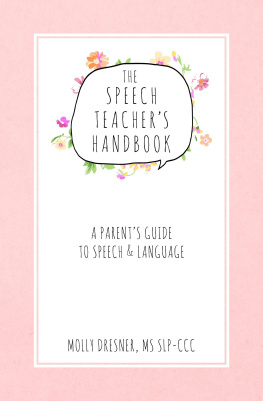

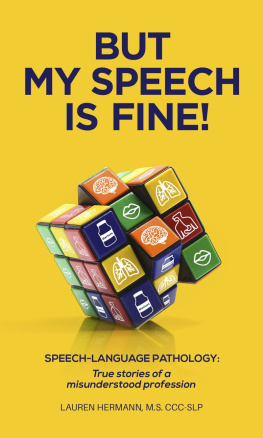
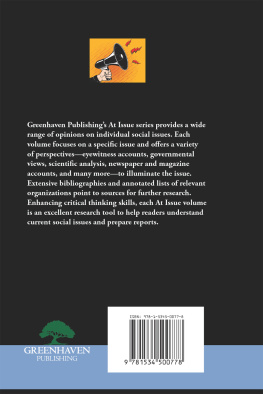
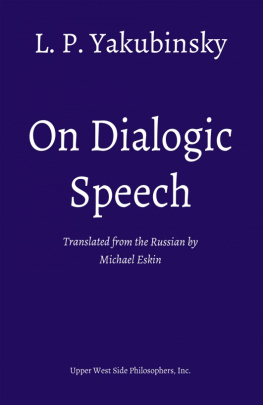
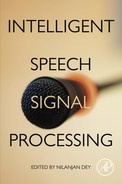
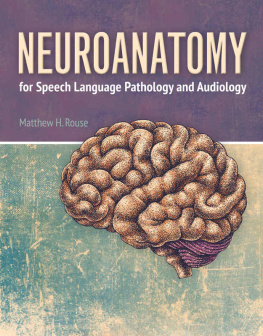

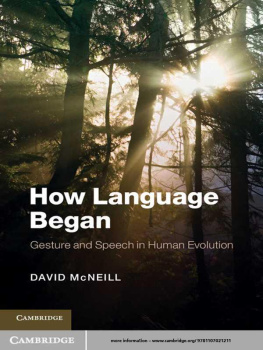
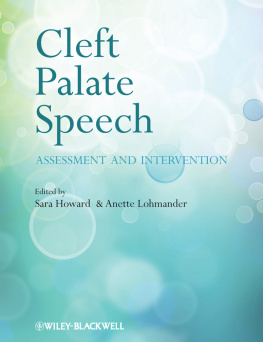
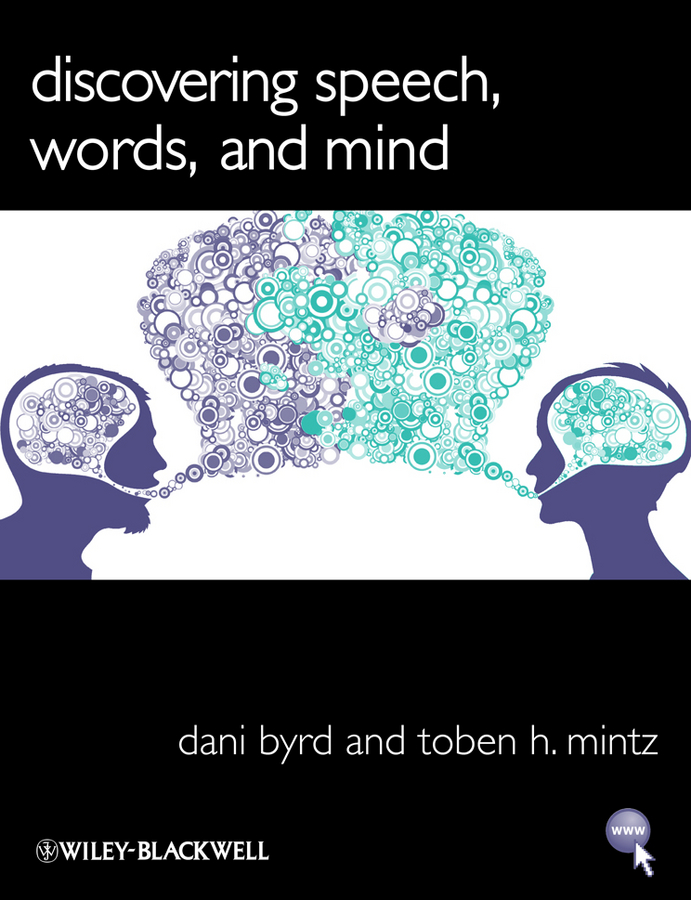
 Accompanying web material can be found at
Accompanying web material can be found at